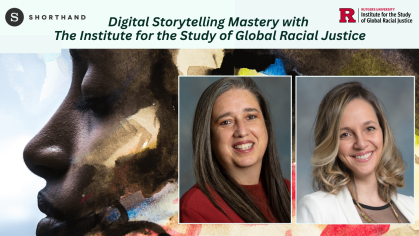Led by its co-convenors, Dr. J.T. Roane (Mellon Assistant Professor of Global Racial Justice, Africana Studies and Geography, at Rutgers University-New Brunswick) and Dr. Teona Williams (Presidential Postdoctoral Fellow in the Department of Geography and ISGRJ Named Term Chair), The Black Ecologies Signature Lab at the ISGRJ draws together threads in order to generate scholarship, artistry, and other resources that aid in infusing public and scholarly discourse as well as our broader cultural imaginaries with the insights generated through the analytical insights, methods, and theories related to Black Ecologies and its closely allied fields, including Black Geographies.
The lab provides a suite of digital projects, speaker series and workshops, community engagement events, teaching and undergraduate program development, and publications to foment Rutgers as a major center for Black ecological studies for faculty, students, and community.



































































